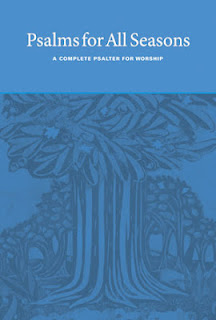It seems that the Catholic Church has created a new translation of the Epiphany Proclamation, in addition to its creation of a new translation of the Exsultet.
In addition, Chant Cafe has posted the score in both modern notation and square notes, plus a very nicely-sung audio file (mp3) (not this year's, though) as a practice recording. (Saint Meinrad has the score, too.)
Here's the new text - I like it better than the old one - from the UCCB's Announcement of Easter and the Moveable Feasts:
I have most often heard this sung at the end of the Eucharist for the Feast of the Epiphany - but the Catholic Bishops' site (linked above) prescribes it for a different part of the liturgy:
More about the Epiphany Proclamation here.
In addition, Chant Cafe has posted the score in both modern notation and square notes, plus a very nicely-sung audio file (mp3) (not this year's, though) as a practice recording. (Saint Meinrad has the score, too.)
Here's the new text - I like it better than the old one - from the UCCB's Announcement of Easter and the Moveable Feasts:
Announcement of Easter and the Moveable Feasts (for the year 2014)
Know, dear brethren (brothers and sisters),
that, as we have rejoiced at the Nativity of our Lord Jesus Christ,
so by leave of God's mercy
we announce to you also the joy of his Resurrection,
who is our Savior.
On the fifth day of March will fall Ash Wednesday, and the beginning of the fast of the most sacred Lenten season.
On the twentieth day of April you will celebrate with joy Easter Day, the Paschal feast of our Lord Jesus Christ.
[In those places where the Ascension is observed on Thursday:
On the twenty-ninth day of May will be the Ascension of our Lord Jesus Christ.]
[In those places where the Ascension is transferred to the Seventh Sunday of Easter:
On the first day of June will be the Ascension of our Lord Jesus Christ.]
On the eighth day of June, the feast of Pentecost.
On the twenty-second day of June, the feast of the Most Holy Body and Blood of Christ.
On the thirtieth day of November, the First Sunday of the Advent of our Lord Jesus Christ,
to whom is honor and glory for ever and ever.
Amen.
I have most often heard this sung at the end of the Eucharist for the Feast of the Epiphany - but the Catholic Bishops' site (linked above) prescribes it for a different part of the liturgy:
The proclamation of the date of Easter and the other moveable feasts on Epiphany dates from a time when calendars were not readily available.It was necessary to make known the date of Easter in advance, since many celebrations of the liturgical year depend on its date.The number of Sundays that follow Epiphany, the date of Ash Wednesday, and the number of Sundays that follow Pentecost are all computed in relation to Easter.
Although calendars now give the date of Easter and the other feasts in the liturgical year for many years in advance, the Epiphany proclamation still has value.It is a reminder of the centrality of the resurrection of the Lord in the liturgical year and the importance of the great mysteries of faith which are celebrated each year.
Each year the proper dates for Ash Wednesday, Easter, Ascension, Pentecost, the Most Holy Body and Blood of Christ, and the First Sunday of Advent must be inserted into the text.Those dates are found in the table which is included with the introductory documents of the Roman Missal.The form to be used for announcing each dates is: the dateof month, e.g., “the seventh day of April.”
On the Epiphany of the Lord, after the singing of the Gospel, a Deacon or cantor, in keeping with an ancient practice of Holy Church, announces from the ambo the moveable feasts of the current year according to the following text. (The musical notation is found in Appendix I of the Roman Missal, Third Edition.)
More about the Epiphany Proclamation here.



















